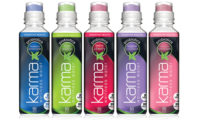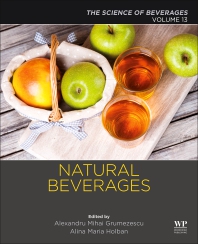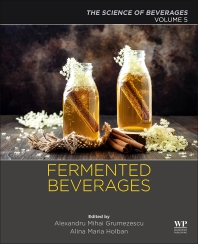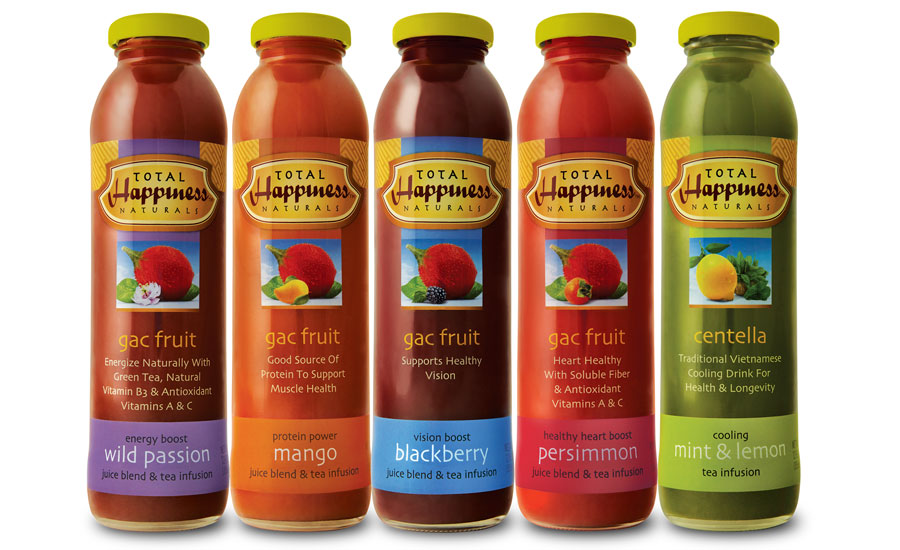Fiber options help beverages become ingredient delivery vehicles
Ingredient suppliers experiment with prebiotic, probiotic blends




Consumers are becoming more interested in the quality and nutritional benefits of the beverages and foods they are choosing. Fiber, in particular, is becoming a popular wellness ingredient because consumers are aware of its multifaceted benefits, especially for digestive health.
“Consumers are realizing the connection between fiber-rich foods and drinks and digestive health as well as other potential benefits,” says Nancy Gaul, senior category marketing manager of health and wellness at Tate & Lyle, Hoffman Estates, Ill.
Dietary fiber is a general term that refers to a variety of compounds from plants that are resistant to the digestive enzymes produced by humans, explains Suze Zhang, associate scientist of formulations for Fortitech Premixes by DSM North America, Schenectady, N.Y.
“Because dietary fiber is resistant to digestive enzymes, it is not broken down or absorbed, which means it does not provide calories or energy to the body,” Zhang says. “In general, dietary fibers are various forms of complex carbohydrates that have varying abilities to swell by absorbing water into their structural matrix. Fibers that can actually dissolve in water, such as pectin, gums and psyllium, are referred to as soluble fiber. Insoluble fibers or roughage cannot dissolve in water, but they can absorb water. This causes them to swell, making them good bulking agents, which speeds up transit time and improves elimination. Examples of insoluble fibers are cellulose, hemicelluloses and lignins.”
A recent push has occurred, though, to differentiate fibers for digestive health, including both soluble and insoluble fibers, as part of a balanced diet, says Dan Grazaitis, senior food scientist at Tic Gums, White Marsh, Md.
In turn, ingredient suppliers like Roquette America Inc., Geneva, Ill., have seen an increase in requests for prebiotic fibers in the past year.
“The average fiber intake by adults in the United States averages somewhere between 15 and 20 grams per day,” says Roquette’s Neelesh Varde, senior product manager. “With the recommended daily intake of fiber increasing from 25 to 28 grams per day, and beverages offering nutrition on the go, it’s natural that consumers are looking to easily supplement their daily intake with healthy ingredients.”
Varde feels the biggest advancement for probiotic and prebiotic ingredients has been in clinical research about the ingredients. “Consumer packaged goods companies are starting to feel the pressure of claims substantiation, and as a result, suppliers are starting to invest more into proving that their ingredients are efficacious,” he says.
Prebiotic fibers — primarily short-chain fructo-oligosaccharides (scFOS), and galacto-oligosaccharides (GOS) — are benefiting from research showing synergistic effects when combined with probiotics, agrees Luis Ferrey, beverage marketing manager at Ingredion Inc., Westchester, Ill. “The next stage beyond uncovering the synergies is going to be which prebiotic fiber matches up best with which probiotic strains to give the best digestive health benefit. Answers to this question should drive commercialization of a very strong beverage product.”
Fiber solutions
As more consumers embrace the role that digestive health plays in overall healthy living, the market for fiber-enhanced products, especially beverages, will continue to grow, industry experts note. Ingredient suppliers are working to keep up with these demands.
For example, Tate & Lyle’s Promitor Soluble Corn Fiber enables significant fiber enrichment without sacrificing digestive tolerance, the company says. The high solubility of Promitor Soluble Corn Fiber also enables manufacturers to boost fiber without creating a chalky or grainy texture in their products, it says. It also has been shown to be flavor- and color-neutral in internal sensory testing, it adds.
Roquette also offers a non-GMO soluble corn fiber and non-GMO soluble wheat fiber under the trade name of Nutriose. The Nutriose line is 85 percent fiber and completely soluble and tasteless, in addition to being stable to acidic and thermal degradation, the company says.
For digestive health, Cargill offers Oliggo-Fiber chicory root fiber, a soluble fiber and prebiotic. “We refer to it as ‘the invisible fiber’ because it is literally ‘invisible’ when in solution,” says Carol Lowry, Cargill’s senior food scientist.
Chicory root fiber can be used to add prebiotics without a large impact on the product’s functionality or appearance, Lowry says. It also can be used to improve taste and texture of products by serving as a fat mimetic and sugar substitute, she says.
Cargill’s Oliggo-Fiber chicory root fiber also is now available in liquid form, making it more convenient to use in beverage processing, says Karri Santamaria, the company’s specialty carbohydrates products manager.
Decatur, Ill.-based ADM/Matsutani LLC’s Fibersol offers a full line of low-viscosity soluble dietary fiber ingredients. “Recent studies have also shown that Fibersol’s line of fiber ingredients can provide an increased feeling of satiety, leaving consumers feeling fuller for longer periods of time, making it ideal for products marketed for weight management,” says Käti Ledbetter, product development scientist at ADM.
Fibersol-2 delivers a 90 percent concentrated form of soluble fiber but has very few sugars that can help reduce overall sugar content, Ledbetter says. Due to its low caloric value of 1.6 kilocalories per gram, it can be used to help reduce overall calories, she adds.
Ingredion offers Nutraflora, a scFOS prebiotic fiber with low inclusion levels. Nutraflora is a highly dispersible, completely soluble powder and can enhance beverage flavors, Ferrey says. It has no viscosifying effects in beverages and does not affect the taste profile of the end product, he says.
Most gums also are excellent sources of soluble fibers and can help provide a balance to a product using insoluble fiber, says Tic Gums’ Grazaitis. “For high-fiber claims in beverages, gum acacia and inulin are the two preferred products since they can be used at higher levels without negative impacts on texture or flavor,” he says.
International Dehydrated Foods Inc. (IDF), Springfield, Mo., recently launched Bone Broth, which has a prebiotic effect in addition to being rich in collagen proteins, says Stephanie Lynch, the company’s vice president of sales and marketing.
“IDF Bone Broth is slightly bitter and has a roaster flavor, but this can be masked or hidden with other flavors,” she says. “IDF Bone Broth is highly dispersible, soluble and can easily be used for formulating a bone-broth beverage.”
Meeting consumer needs
Fortitech Premixes by DSM’s Zhang believes interest will continue to grow in the development of innovative products directed at different segments of the digestive health market. “A premix fortification approach can help manufacturers develop new and innovative products specifically tailored to the needs and desires of different populations,” she says.
As consumers become more and more health conscious, digestive health ingredients will continue to increase in beverage formulations, experts note.
“The ingredients that will become most popular are those that show clinically proven efficacy and value to the consumer,” Roquette’s Verde says. “In particular, digestive health ingredients that can help modulate intestinal health without negatively impacting the consumer, based on tolerance or taste, will have an advantage over others.”
Beverages also are a great vehicle for digestive health ingredients because of their ease of use, convenience, availability and practically immediate effect, Ingredion’s Ferry adds. “Beverages are flexible enough to be taken by consumers of almost any age and preference as they can be easily adapted to consumers’ dietary needs, preferences and restrictions,” he says.
Looking for a reprint of this article?
From high-res PDFs to custom plaques, order your copy today!










